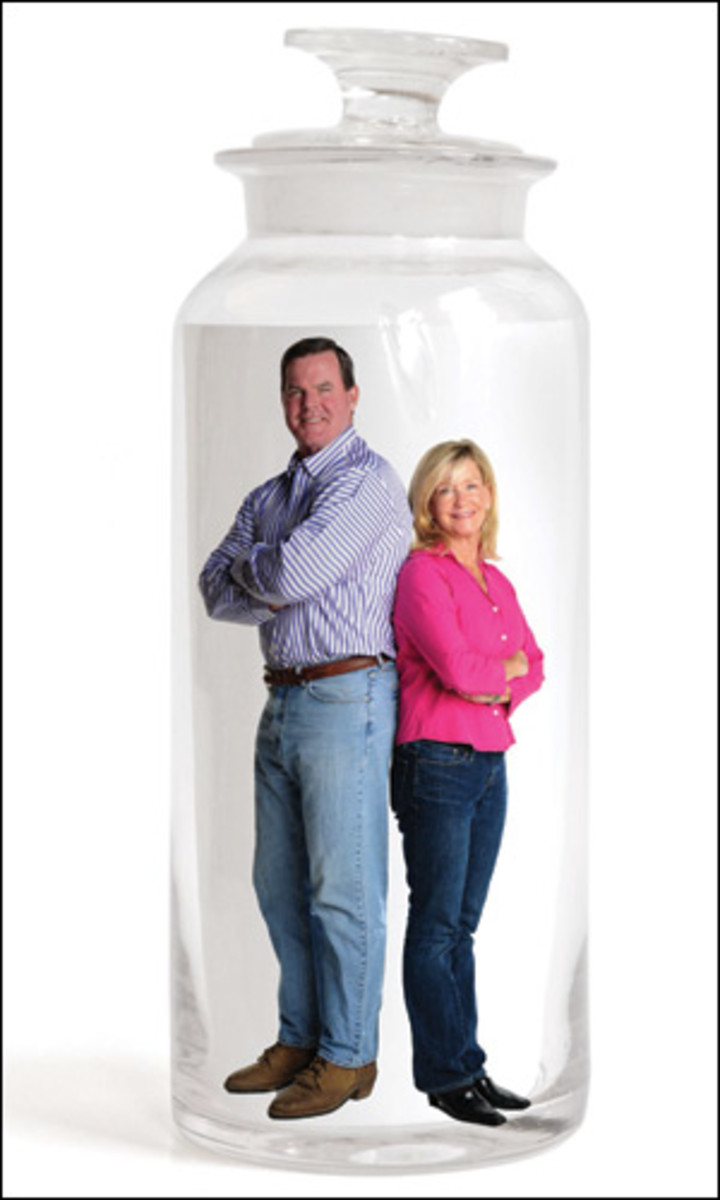
Youth Movement
On a February morning in Thousand Oaks, Calif., Kevin Hart, 53, carefully sets out the NovoLog injection pens for himself and Peggy, his wife of 28 years. "Like most old married couples," Peggy, 52, says, "we take care of each other. We wake up together. We make breakfast for each other. One of us lays out the towels when the other one is in the shower. And sometimes it's this." This is their daily injection of human growth hormone.
They are on roughly the same prescription program from their doctor, Mark Gordon, an Encino-based physician. Kevin, a former linebacker at Penn State who is 6' 3" and 225 pounds, pinches a layer of fat on his stomach and injects .33 of a milligram of somatropin, the most common form of HGH. Peggy, a petite 112 pounds, injects a slightly smaller dosage into her thigh.
They are on different schedules for their testosterone. Kevin sticks a needle, loaded with 60 milligrams, into his buttocks every Sunday, while Peggy uses her belly for her 30-milligram dosage of the male hormone, which she takes every other Friday. (By comparison, bodybuilders typically take as much as 400 milligrams of testosterone as often as twice a week.)
"Frankly, I don't care what anybody thinks about it," says Kevin, who retired in 2001 after reaping a financial windfall from SunAmerica, where he had worked for eight years. "I feel better, my life is better, and I might live longer."
There's no reliable estimate of how many Kevin and Peggy Harts are out there, but they represent an emerging demographic of performance-enhancing-drug users -- well-to-do (the Harts' monthly expenditure for HGH and "test," as they call it, is almost $2,000) suburbanites who take their medications because of measurable deficiencies in HGH and testosterone.
The possibility that doses of HGH will cause cancer is the red flag usually raised by critics of growth-hormone-replacement therapy. Gordon says that some of his patients have been using growth hormone for as long as 12 years without any ill effects.
Kevin believes he is taking a risk, "but only a small one and one I'm willing to take." He sees himself as a pioneer patient. "If when I die there are any causes associated with my having used this, my kids, my friends and a lot of other people will have learned a lesson," Kevin says. "And if it turns out that it made me feel better and extended my life, they'll know that too."





